SCHOOLS REPORT UAE: WHAT MADE THE NEWS FOR SCHOOLS, PARENTS AND STUDENTS IN EDUCATION THIS WEEK?
The Schools Report brings you the SchoolsCompared.com official Weekly Briefing on the Hottest News in Education.
Every Friday we bring you the latest stories in education in the UAE and around the world in the last 7 days. Here’s what’s been happening this week…
This Week in Education. UAE Education News. First. Every Friday. Only from SchoolsCompared.com.
Dubai begins Pfizer jabs for 5-11 year olds
In a major extension to the vaccination drive in the UAE, children aged 5 to 11 years old may now receive the Pfizer-BioNtech COVID-19 vaccine in Dubai, according to an announcement by the Dubai Health Authority (DHA) on 1 February 2022 and confirmed by SchoolsCompared today.
This has been welcome news for many parents, who feel safer knowing that their children have been vaccinated against COVID-19.
Ellie Salkeld, a part-time teaching assistant, writer and mother of two based in Dubai, is one parent who welcomes the news:
“I will have my two seven-year-olds vaccinated as soon as possible. And I would love for it to be a widespread thing, for all children for whom no elevated levels of risk might apply. I am in favour of anything that will safely steer our children back towards normality, in the classroom and in life.”
Until now, the Pfizer vaccine was only available to children aged 12 and above. However, the Sinopharm Covid-19 vaccine for children between 3 and 17 has been available since August 2021.
Although the UAE’s Ministry of Health and Prevention (MoHaP) approved emergency use of the Bio-N-Tech vaccine for children aged 5 to 11 back in November 2021, it has not been possible for parents to book for their children to receive the vaccine in Dubai until this week, February 1 2022.
Find out exactly how to book your child’s COVID-19 vaccination in Dubai.
When is the half-term break for schools in the UAE?
Many schools in the UAE will close for a week this month for the half-term break.
International schools that begin their year in September will close from Monday, 14 February. But pupils will have two more days off as February 12 and 13 fall on a weekend. February 11 will be a half-day for all schools.
Many British schools will be off from February 12 to 20 (including both weekends) and classes will resume on February 21, Monday.
Some American schools will have three days off from February 12 to 14, including the weekend. Classes will begin on Tuesday, February 15.
Term 2 will end on March 25 in most schools, followed by the spring break.
Schools that begin their academic year in April will not have a midterm break in February but they will get more than two weeks off at the end of March.
The February break is one of the busiest periods of the year for tourism, with tens of thousands of foreign visitors heading to the Emirates as Europe’s schools take a week-long holiday.
When is the half-term break for schools in the UAE? (thenationalnews.com)
International schools need clarity on GCSE and A-level exams
International schools have had vastly different experiences during the pandemic – which is why holding all pupils across the world to the same exam standard as in England is so concerning, writes Mark Leppard, Headmaster of The British School Al Khubairat in Abu Dhabi and chair of British Schools in the Middle East (BSME) in TES magazine. The disruption caused by Covid – especially the Omicron variant – means students in different nations have had hugely different levels of education this academic year.
While students in England have had access to face-to-face teaching and practical equipment in schools for the majority of the time since September 2021, this has not been the case in a vast number of schools around the world.
In Abu Dhabi, for example, schools have been delayed in restarting after the summer and winter holidays by at least three weeks each time. “Even without individual class and year-group closures due to positive cases, this is 30 days where students have not had access to face-to-face learning compared with their counterparts in the UK and other regions where schools have been fully open,” says Leppard.
In Saudi Arabia, meanwhile, January 2022 saw schools return to face-to-face learning for the first time since March 2020. This means that those students sitting their exams this summer have not accessed teachers in person or had access to facilities such as laboratories, workshops, sports facilities and theatres within the school for their entire A-level or GCSE course.
However, none of these schools has answers to what the exam boards plan, “and this is causing high levels of stress for the students already in a state of raised anxiety through the normal exam series,” says Leppard. “In all of the above examples, we need to be mindful that those students completing their A-level exams this year have also missed the experience of sitting GCSE exams and had a vast amount of time out of school during Year 11.”
Parents, staff and students are all worried about what exams could look like, and how learners could be supported if another coronavirus wave means exams are not accessible for everyone. Leppard says: “They are anxious that, if they sit exams, their grades will be compared with students who are awarded teacher-assessed grades.
“The current Year 11 and 13 students have had a really tough time over the past two years and need to be both reassured and supported. All of this is out of their hands, but they are the ones most greatly impacted. We owe it to this generation of learners to support them.”
Dubai parents rush to get their children Pfizer Covid vaccine before mid-term break
Parents in Dubai rushed to get their children vaccinated against Covid-19 within hours of an announcement that those aged 5 and above were eligible to receive the Pfizer-BioNTech vaccine.
Families said Dubai Health Authority’s announcement was timely, as most international schools in the emirate will close on February 11 for the mid-term break and many pupils will travel to home countries and other destinations.
A separate wing for children at Oud Metha vaccination centre is decorated with balloons and cartoon cut-out figures.
Parents said the experience was smooth on the first day, with vaccinations administered within 15 minutes of arrival at the centre.
Some brought their children straight from school to beat the rush that is expected in the coming days.
Len Apie, from the Philippines, brought her children Lewis, 9, and Clark, 6, to be inoculated.
“Today is the first day that they are offering vaccines to such young children and we just rushed. It’s a milder dose than the ones we got so I’m very comfortable. It’ll be safe to travel now,” Ms Apie said.
Dubai Schools Ditch Covid Restrictions
Dubai’s education regulator, the KHDA, announced that Dubai’s schools and nurseries were permitted to resume group activities that were halted due to Covid-19 prevention strategies.
From this Monday 31st January, schools and nurseries were able to reintroduce field trips and extra-curricular activities, as well as performances and gatherings.
School canteens, cafeterias and common eating areas have also been permitted to reopen, much to the relief of many parents.
School and nursery leaders expressed happiness and relief at the announcement.
Giles Pruett, Executive Principal at The Arcadia School, Dubai, said:
“Arcadia schools are delighted that we will be returning to term one learning conditions as the Omicron wave is softening. Our students have really missed their extra-curricular activities and sports and have found it frustrating to be confined to indoor learning spaces. This is fantastic news for us all.”
All grades in Abu Dhabi schools welcome back students
After nearly a month and a half, schoolchildren across all grades returned to school campuses this morning, including students enrolled in Grades 6 to 11.
All year groups at private schools in the capital joined government-run schools across the country in resuming face-to-face education.
Schools geared up to return to full capacity on January 3, only for distance learning to be temporarily brought into force as a precautionary measure amid a rise in Covid-19 cases.
The long wait was finally over on Monday morning as pupils relished the opportunity to reunite with friends and school staff.
Parents, students and educators alike were happy to see children back in their classrooms. Prior to returning to schools in Abu Dhabi, all students have had to undergo free PCR testing. These tests will be repeated every two weeks for students and staff. In the meantime, schools are still also required to provide distance learning to those students who opt for it, as long as the preference is communicated ahead of time to school authorities.
All grades in Abu Dhabi schools welcome back students | Education – Gulf News
Are cheap, remote tuition classes offered from outside UAE legal?
A new market for remote private tuition, managed by people from outside the UAE, has emerged in the wake of the Covid-19 pandemic, reports the Khaleej Times.
Parents say anonymous people have communicated with them from Pakistan, India, the US and a few Arab countries, offering cut-price tutoring services. Some parents have even fallen victims to scams related to online tutoring, which have reportedly become widespread this academic year.
“Several parents have reported receiving SMS or WhatsApp messages from strangers,” writes Khaleej Times. “They promote teachers who specialise in all subjects and are knowledgeable about the curriculum. They then claim to provide discounted services, not costing more than $40 (Dh146), for a single two-hour lesson.”
The service providers also ask parents if they want a teacher to come home so they can assign someone who’s already in the country. Most promote private tuition classes for maths and English, and target students in the UAE as well as other Gulf countries, such as Qatar.
Umaima Hussein and Maha Al Taweel, parents of students studying in the American and British curricula respectively, told Khaleej Times that they were attracted by the ads because the prices were reasonable.
However, they later discovered the remote tuition classes were scams. “They offered a free trial when we signed up, but they asked us to make payments of $50 using credit cards,” the parents said. “We made the payments and they disappeared, but they continue to withdraw the amount every month until we informed the bank and blocked the cards.”
While other parents reported using the remote tuition services without a problem, the Ministry of Education (MoE) urged parents not to deal with unidentified people who promote private lessons from outside the country.
An official at the Department of Private Education at MoE warned students and parents against the unregulated market for private lessons, especially those run by unidentified people who do not submit documents that prove their academic and professional qualifications and competencies.
Such people’s lack of knowledge of the local curricula could negatively affect students’ performance in exams.
The official also confirmed that MoE and the teacher’s charter forbids teachers working in schools to offer private tuition classes. Those who violate the ministry’s laws will be terminated.
Meanwhile, Sharjah Police said they received a number of complaints related to educational scams across various police stations in the emirate.
A police official urged families not to respond to text messages or calls from strangers outside the country who promote such services. The police also warned parents against providing their credit card details online or to unknown parties.
Survey: International school teachers have much more fun than UK teachers
Working in an international school is more fun than working in the UK, a new survey suggests.
More than half (54 per cent) of international teachers responding to the TES Staff Wellbeing Survey 2022 said they find their job fun, compared to only a fifth of UK respondents.
Teachers working internationally are also much less likely to complain that their workload is unmanageable than those in the UK.
A total of 49 per cent of staff said their workload was manageable, in contrast to their UK colleagues where only 18 per cent said this was the case.
The survey, which included 1,054 international responses from a total of 4,300 teachers, found that 70 per cent of international teachers feel confident performing their roles, compared to just 38 per cent of UK staff.
The findings revealed some dissatisfaction among international teachers with the amount of say they have in the running of their schools, and 37 per cent said they don’t have a voice. Despite overall wellbeing appearing better in international schools, only 49 per cent of teachers said they would recommend their school to a friend as a place to work. Find out more.
Traditional school largely favours the loudest and most confident. But what if that’s not your child?
Traditional school has never been able to help each and every individual. It’s a system that largely favours the loudest and the most confident, says Hugo Davison, Head of Digital at Minerva’s Virtual Academy, which delivers a private-school British education online. “Some schools have turned children – now adults – into nervous wrecks their whole life from bullying. It’s only now, with alternatives like us, that people are starting to see that there might be a better fit for their individual child.”
Anxious pupils become more confident when outside of the pressures of the traditional school environment, explains Davison. “At our school pupils receive personal mentoring – dedicated to each child, which is more than they might expect even at private school.” Minerva’s Academy teachers focus on confidence and motivation as tutoring strategies, which enables them to unlock the academic potential of every child, says Davison.
“We still teach the same core syllabus as bricks and mortar schools, but we do it differently. By shifting the focus to self-study (supported by personal mentors and subject teachers), pupils learn to manage deadlines from an early age, they learn to self-motivate and how to collaborate with their peers in an online environment – all skills that the modern workplace demands.” Find out more about home schooling and Minerva’s Academy.
Is it OK to send your child to school with a runny nose?
As the highly contagious Omicron COVID-19 variant sweeps across the world, closing schools and sending nurseries online once again, parents are now well-versed in screening their children for the slightest sign of sickness.
The UAE’s strict pandemic health regulations mean kids will be sent home from their educational institutions if they exhibit anything from a fever to a cough or runny nose. The precautions have been there since COVID-19 first emerged to keep children and their families safe – and, for the most part, parents have been grateful for the additional caution that has enabled school and nursery life to be as safe as possible.
But it is now two years on from when the pandemic first began, and some UAE parents are starting to get slightly sick of things themselves.
“Enough is enough,” says Katy Rice, Dubai-based founder of sustainable online family concept store Eco Souk and the mother of three children aged 8, 6 and 2.
“Kids are going to catch a cold and colds still exist. It’s nothing new. The general common sense that we all used to apply before COVID was that you wouldn’t generally keep your child home from school unless they had a fever or were particularly unwell with a streaming cold or cough. In the case of a simple runny nose we would never have dreamt of keeping them out of school or nursery for five, seven, five or ten days at a time. I think we should get back to a place where parents are again empowered to make a decision on whether or not their children are well enough for school.”
Remote learning proves the importance of parents in education, says UAE minister
Parents play a key role in children’s learning and are instrumental in developing education, said Hussain Al Hammadi, UAE Minister of Education.
In his latest article on the UAE education system, titled: “Parents are a key component of our educational system”, Al Hammadi noted that parents had a great impact in achieving “our country’s educational aspirations from the very beginning, by ensuring the education of both boys and girls, and instilling in their daughters and sons the importance of science, which is a foundation for the UAE human capital to achieve our comprehensive national renaissance.”
“Parents remain a major influence on their children’s learning through school and into higher education,” he said.
“We are fully convinced that, in the process of pushing forward with many initiatives within our short, medium and long-term future plans, we will continue to receive advice and support from parents, and work together to fortify our identity, enhance our present, and crystallise our future,” said Al Hammadi.
Plan to ban mobile phones in UK schools scrapped and Oxbridge science-funding cuts announced in new White Paper
The UK government’s new ‘Levelling Up’ White Paper has announced many planned changes to the UK’s education system, one of which is a U-turn on plans to ban all student mobile phones. UK schools were set to become mobile-phone-free zones after an announcement last summer by the then education secretary. But this week the Department for Education said revised guidance on behaviour would make clear that “head teachers are best placed to make decisions on whether mobile phones should be in classrooms”, considering the needs of their pupils.
Another announcement in the White Paper includes plans for Oxford, Cambridge and London Universities to have their share of science funding fall as ministers promise most research cash will go outside the southeast.
Billions of pounds more of public money will be poured into universities and businesses outside the “golden triangle” in an effort to kickstart innovation and emulate Silicon Valley in areas such as the West Midlands.
However, some scientists are privately concerned that diverting money away from centres of excellence in the name of levelling up risks harming research into vital areas such as curing disease.
The Schools Report. © SchoolsCompared.com. 2022. All rights reserved.















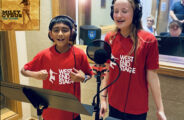



























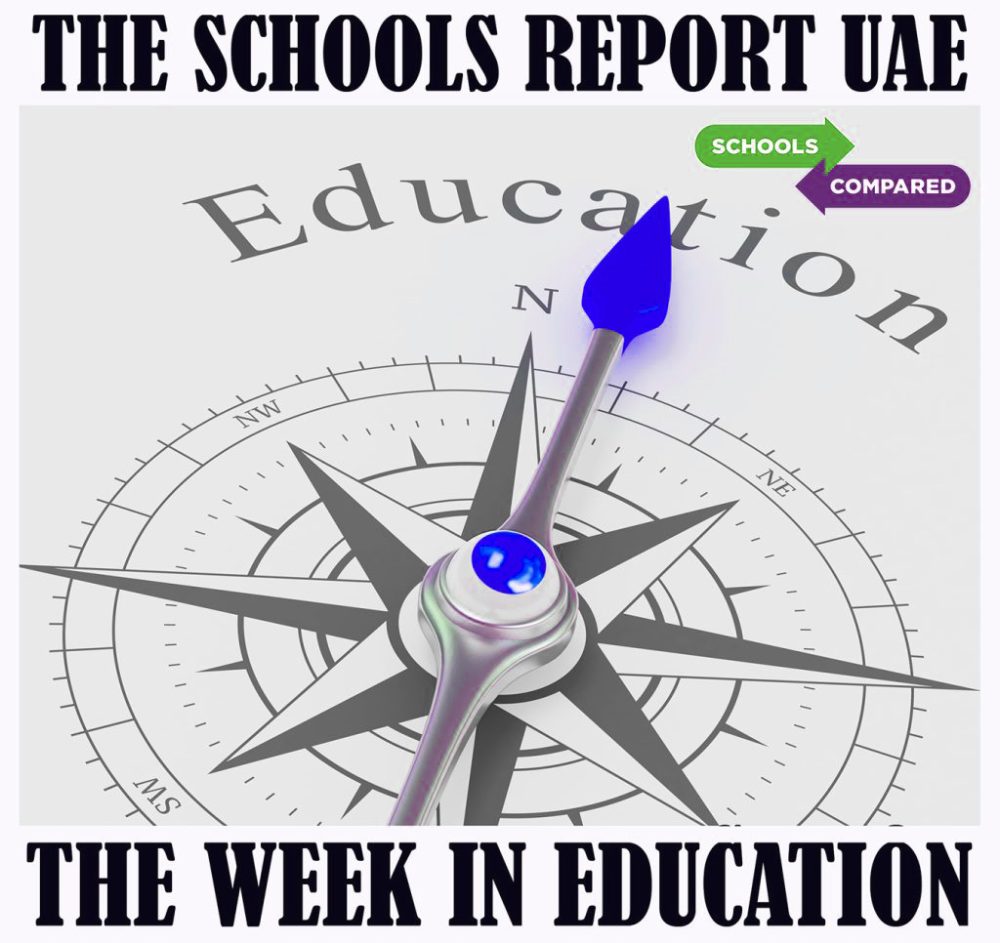






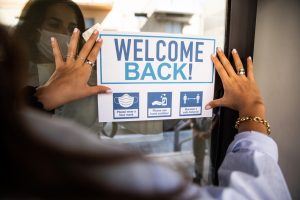
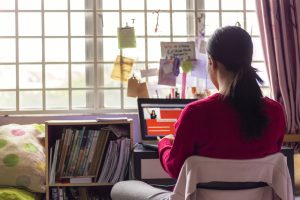





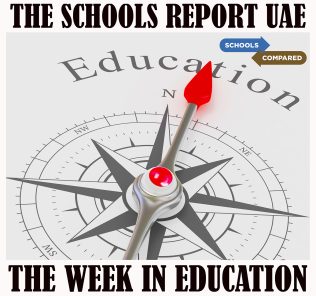
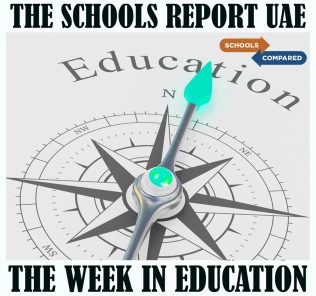



















Leave a Response